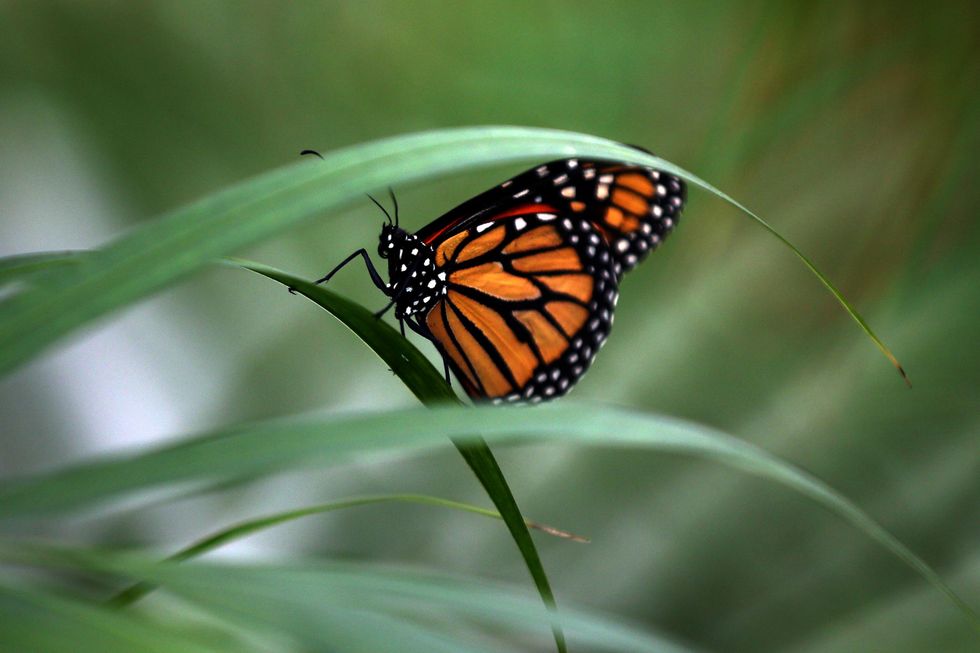In a previous article of mine cleverly entitled, “Does Originality Exist,” I explored the reasons why originality has been stalled, less evident or discouraged from the public. I also concluded my assumptions with a hint of optimism that originality is attainable and should be glorified. On the surface, originality is thought to be what is unique or something that parallels the persona of the person who has endeavored in whatever the act may be. Merriam Webster Dictionary defines originality as “freshness of aspect, design, or style” or as “the power of independent thought or constructive imagination,” which by all means is acceptable, but is not realistic. For one may try to engage in originality but their efforts will be in vain for originality, does not exist.
I was more optimistic about the concept of originality, and to some extent there is a sense of originality in differences or new developments within the world as those ideas had to have come from someone or something that has never conceived of such an idea before. Except that what has caused those innovations to occur was not the sole work of the person. The reason those ideas have come about, and the inclination to pursue those ideas, is due to the influences that surround our daily lives. I am not referring to direct influences or visual influences such as a person walking up to another person and stealing their wallet. Serving as an inspiration for the victim to create a better security system than the ones in place in that area. That indeed is an example that indicates how an epiphany for an innovation or what sets the wheels turning for creation, to occur, providing evidence to the unoriginal aspects of society, but what are the most common and inevitable influences are those that go unnoticed or unrealized.
These unsuspecting influences are the most impactful and for lack of a better term, influential. The cool breeze on a summer day, bumping into someone on accident, eating a doughnut instead of a muffin, doing homework outside rather than the usual indoor routine, or something as trivial as the flap of a butterfly’s wings are contingent on how one’s life plays out. If the example of the butterfly’s wings were not apparent enough, I am speaking about the butterfly effect (and not that crap with Ashton Kutcher).
The butterfly effect is a theory in science that forwards the idea that one small change or occurrence in one section of a system can have a large effect on the system as a whole. This theory can be applied to daily life as a plausible justification as to why we as humans perceive or perform actions in a certain way.
As human beings, we are interpersonal creatures, and whether we like to admit it or not is a case to be discussed at another point in time. Every species on earth shares this trait as no other member of the animal kingdom, or other walks of life, are independent but co-dependent. Each member of a pack, school or tribe rely on one another to function appropriately within their respected society. With this concept in mind, it is clear and obvious to note that everyone or any creature will leave an effect on us, as an influence that changes our steers our perceptions and futures. It is also imperative to understand that the influences of another, be it a human or another animal, will create a condition whether that is on a societal or personal level, depending on the act.
For instance, let us consider the impact of encountering an animal for the first time. Two general scenarios may occur. The animal in question may think the person is a threat and will attack him or her leaving them scarred in fear of that animal, or the animal will be willing to interact unafraid with the individual leaving a warm impression on him or her to consider that animal as pleasant. In a broad view the person will either be hesitant towards the animal, or accepting of it in the future. In a more personal view, the tentative individual will be less likely to purchase or react positively towards that animal in consumer products or services such as an animal imprinted on a cereal box or one in a cartoon. This could work in the opposite manner for the individual who had a more positive experience with the animal, as they would be unflinching towards the animal in consumer goods. Granted, these are two general scenarios without much specifics, as there a plethora of options that can come about form such an event, as every little motion, reaction and perception would create a different future.
The previous example was one of a new experience without the inclination of prior conditioning, which would offer another variable in the makings of the encounter. To consider the effects of conditioning - a determinate of actions - let’s think about sneezing. Sneezing is a violent and strange act that causes some unwarranted effects, depending on the environment the sneeze takes place in. Philosopher Richard Taylor, touches on this event in his article “Freedom and Determinism,” when he states “if a certain nasal tickle warns me that I am about to sneeze, for instance, then I cannot deliberate whether to sneeze or not; I can only prepare for the impending convulsion.” One cannot control a sneeze or hinder its forthcoming as it happens involuntarily, one can only hope to ready themselves for the impact the sneeze will have. To keep the theme of using two general scenarios, take the hypothetical events of sneezing amongst peers and sneezing in an audience during a presentation. Both events are of course widely different, except for the controlled variable of the sneeze, however these two separate examples will indicate the effects conditioning has on a person. Living in a society means abiding to sense of conformity; appeasing to conditions and stigmas that keeps our groups together and in order, instead of in complete disarray. It is why when the environments differ, the same cause will not create the same effect. When viewing a presentation, the conditions we have set are to be courteous and to not make any noise unless requested to. Otherwise, the members of the audience will look unkindly upon the noise-maker unknowingly disparaging their actions against the set conditions. That is why when someone accidentally sneezes during a presentation, the person will immediately be self-conscious and apologetic for uttering any noise, for the person has been condition to think that making any sound during such an affair is rude and unwelcomed. However, when amongst peers, a sneeze will not have the same impact as it had during a presentation. A person, while around friends, is more comfortable as these individuals have befriended each other based on a mutual interest, understanding and appreciation. The conditions are more relaxed and are less concrete with exceptions of following a certain agenda or lifestyle that has allowed for friendship to occur in the first place. It is why when someone sneezes while hanging out with friends, there is no embarrassment, or anxiety caused by the action of the sneeze due to the more personalized conditions. Taylor states, “if I can know what those conditions are and what behavior they are sufficient to produce, then I can in every such case know what I am going to do and cannot then deliberate about it.” The conditions are set and when the sneeze or the interaction with the animal occurs, there is no deliberation of what the person will do for the conditions dictate response and not individual desire. It is sufficient to say, no one is in control of their own actions for the conditions implemented by society, and natural influences, are the decision-makers.
In the film, Mr. Nobody, a butterfly is shown flapping its wings on the leaf of a bush before flying away. When the butterfly takes its flight its departure of the causes a gust of wind, half-way around the world which propels a leaf into the air before falling on a sidewalk as the protagonist’s father, steps on the leaf, slipping, and falling to the ground. The protagonist’s mother, walking by, sees the fallen man and helps him to his feet, which becomes the story of how they first meet. The butterfly, from the other side of the earth, caused not only a marriage to happen but a child to come into the world. If not for the tiny butterfly, the two would have never met, and the protagonist would have never been born, making the butterfly contingent on their specific reality. It is in this example, orchestrated by the film Mr. Nobody, a seemingly insignificant event typically ha a very significant effect on the rest of the world. It would also be astute to imply that every decision and choice one makes is based on the actions of other people or any species for that matter.
A person eating a doughnut instead of a muffin could cause someone to miss out on a doughnut. Let us refer to this doughnut-less person as John. Unfulfilled by the absence of a doughnut may entice John to search for a doughnut elsewhere, for he always has a doughnut on Fridays as it had been a conditioned experience of joy that he had shared with his now deceased father. On his way to find a doughnut, he could run into a friend that he had not seen in a few years. This other individual, to whom we will call Joanne, seeing John for the first time in a few years, could re-awaken intimate feelings she had for him. Even though she has a boyfriend, Joanne, running into John could cause her to doubt the relationship she has had with her boyfriend, and after a week of contemplation, she dumps him. Joanne could potentially have grown up reading, and watching stories pertaining to romantic notions of love, which could condition Joanne to think that she can only have feelings of intimacy towards her significant other and if for a moment, she has feelings for someone else, then that love she believed she had was not true. If the person chose to eat the muffin, then John would have never run into Joanne, and if Joanne had never run into John then she would have still been with her boyfriend.
Every action creates a reaction and every cause has an effect, leaving everything on earth subject to an infinite cycle of coincidence. All ideas, innovations and actions are created and can have only been created by something trivial and accidental such as, the flap of a butterfly’s wings. It is due to this effect, commonly referred to as the butterfly effect, that originality and genuine decision-making is a lie. There is a saying that goes: “if you wish to make God laugh, make a plan.” No one has ever made a plan that has been 100 percent accurate; events have never gone into fruition, and the reason any plan has ever come into thought is due to the influences and conditions that have warranted its existence. Replace the idea of ‘God’ with the infinite conditions and influences in the universe, and one can see that everything that happens is coincidental, and not only is life without originality, it is the culmination of accidental forces without purpose.




















